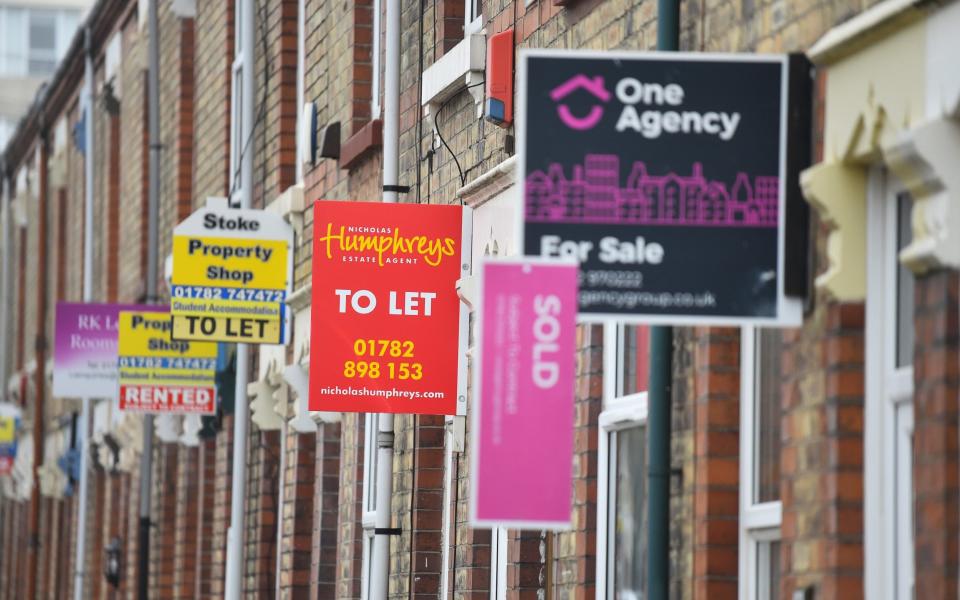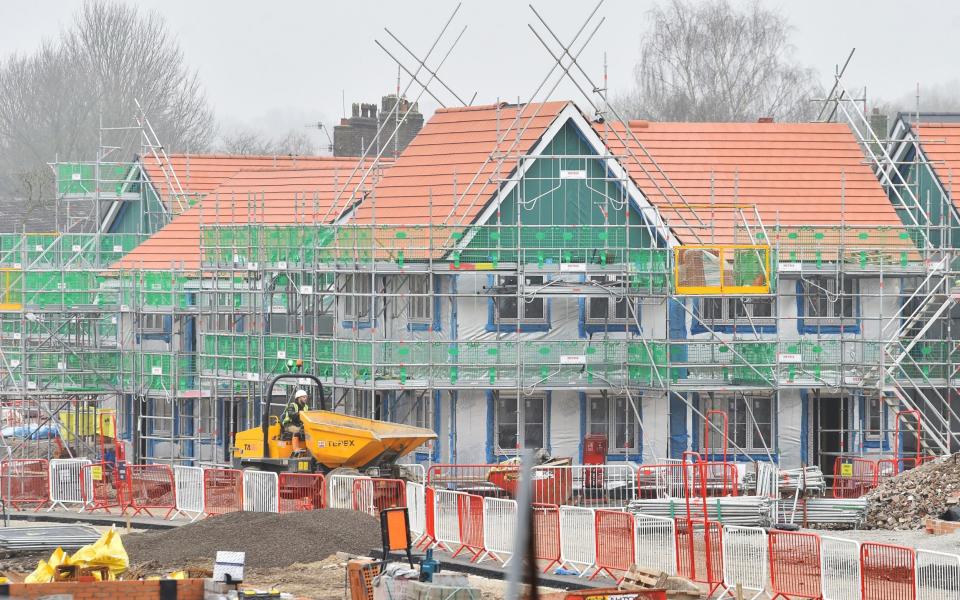The crack threatening to bring the housing market crashing down

It is not just the world’s most powerful leaders that have been enjoying the charms of the Cornish seaside town of St Ives and neighbouring Carbis Bay this week.
Lockdowns and home working have sent seafront villages and rural towns rocketing in popularity as Britons swap their urban lives for larger houses by the coast or in the country.
Cornwall overtook London as the most searched for place on Rightmove for buyers earlier this year.
Meanwhile, searches for upmarket villages such as Bruton in Somerset and Chipping Norton in the Cotswolds jumped more than 100pc last autumn versus a year ago.
Instead of damaging the housing market, the pandemic has led to a property-buying frenzy, not only in Britain but across advanced economies.
With households flush with cash and banks well capitalised and eager to lend, the mad scramble appears to be far from over.
An overheating market
The Bank of England’s chief economist Andy Haldane last week described Britain’s housing market as “on fire”.
But behind the scenes, experts and economists are scanning the market looking for signs of any cracks that could widen into a crash.
“As we approach an uncertain freedom day, the end of the furlough scheme and with the stamp duty deadline just around the corner, the market hangs in the balance,” says Iain Swatton of mortgage broker Dashly.com.
“Nothing is certain, but these factors could be the cracks we start to see in the next few months.”
Property economist Andrew Wishart of Capital Economics is keeping a close eye on two key indicators - mortgage affordability and unemployment levels.
If house price growth fails to cool over the next couple of years, or the Bank of England raises interest rates substantially, “affordability would deteriorate which would increase the likelihood of a correction”, he warns.
A big drop in unemployment if economic activity stalls could also lead to forced sales and downward pressure on house prices.
In Cornwall, one of the UK’s hottest markets, other warning signs are already at play.
Estate agents have said bidding wars are commonplace as there are just not enough properties coming to market.

Some buyers in Cornwall have lost out because sellers were not able to find anywhere else to buy. The imbalance between supply and demand is something experts are watching closely.
“As we come out of the pandemic and the economy grows, rising numbers of homes for sale could lead to a softening of house prices,” says Anthony Codling, of property website Twindig.
“We also have to remember that there is no ‘national’ housing market, but rather a collection of thousands of local markets with their own demand and supply dynamics.
“For instance, I live in north London, so I have little concern about what is going on in the south London housing market and less concern still about the market in say Swindon. Similarly, those in Swindon are not really troubled by the price of my house.”
Stamp duty cliff-edge
House prices have reached record levels due to the shortage of supply, the stamp duty holiday, the ‘race for space’ due to home working, the increase in household savings and the access to low mortgage rates.
“What could be the crack or cracks that brings the housing market down?” Codling asks. “Simply put, a reversal of one or more of the drivers currently pushing house prices up.”
Many of these drivers, such as supply and savings, could be about to change as the UK emerges from the pandemic. As restrictions on overseas travel are lifted and social lives come out of hibernation, Codling predicts that less additional cash will flow into the housing market, tempering house price inflation. Supply is also likely to increase once the majority of people believe that the pandemic is over.
“I hope that the many housing market levers adjust slowly so that we do not see house prices fall as quickly as they rose. History tells us that the current level of house price inflation is not sustainable and there are risks that those that buy in haste today will have plenty of time to repent in their larger homes,” he adds.
Lewis Shaw, the founder of mortgage adviser Shaw Financial Services, is concerned about what will happen when the stamp duty holiday ends.
“The biggest red flag is how the hell house prices have managed to rise at the fastest pace in decades to the highest levels ever seen at the same time as we have been on the wrong end of the biggest economic hit in modern history,” he says.
“The property market could be facing a perfect storm when the stamp duty holiday ends and if unemployment rises sharply once the furlough scheme draws to a close.”

Yet others think the market is so hot that few will care about the tax break ending soon. Estate agents warned of an imminent cliff edge ahead of the original stamp duty deadline earlier this year, but now talk of the market coming to a crashing halt has faded.
Kallum Pickering, a senior UK economist at Berenberg, thinks there’s a decent chance house prices don’t moderate after the stamp duty effect fades.
If that’s the case, then “the situation may start to look a bit more precarious,” he says. “This is a proper economic boom and we’re running the risk of not recognising it.”
The BoE's backup weapon
Pickering argues that discussions about the market crashing often wrongly focus too much on house prices, when actually the warning signs that the market might be about to turn are more about “cracks in the fundamentals” such as the ability for banks to lend.
But the Bank of England is more likely to throttle the market than allow a bubble to form unrestrained before it bursts, he adds.
The Bank was given legal powers to rein-in mortgage lending in 2014 after George Osborne warned that Britain’s roaring housing market posed a threat to financial stability, and the tools put in place that year are still in place. Stress tests of the banking sector have shown it can cope with a 30pc fall in property prices.
“For now, market momentum remains reassuringly solid. Buyer demand is strong, interest rates are very low and lenders remain keen to lend,” says Jonathan Hopper, of buying agents Garrington Property Finders.
“House price inflation will inevitably cool in the coming months, but broadly the market is in good health.
“The elephant on the horizon – if not yet in the room – is interest rates. The Bank has a mandate to keep inflation at 2pc, and with consumer inflation doubling to 1.5pc in April, that level could soon be breached.”
If it is, he believes the Bank may reach for its blunt instrument of choice - a rise in interest rates. “Increasing the cost of borrowing could slam the brakes on credit-reliant sectors of the property market and spark fears of a derailing of wider economic growth,” he says.

 Yahoo Finance
Yahoo Finance 